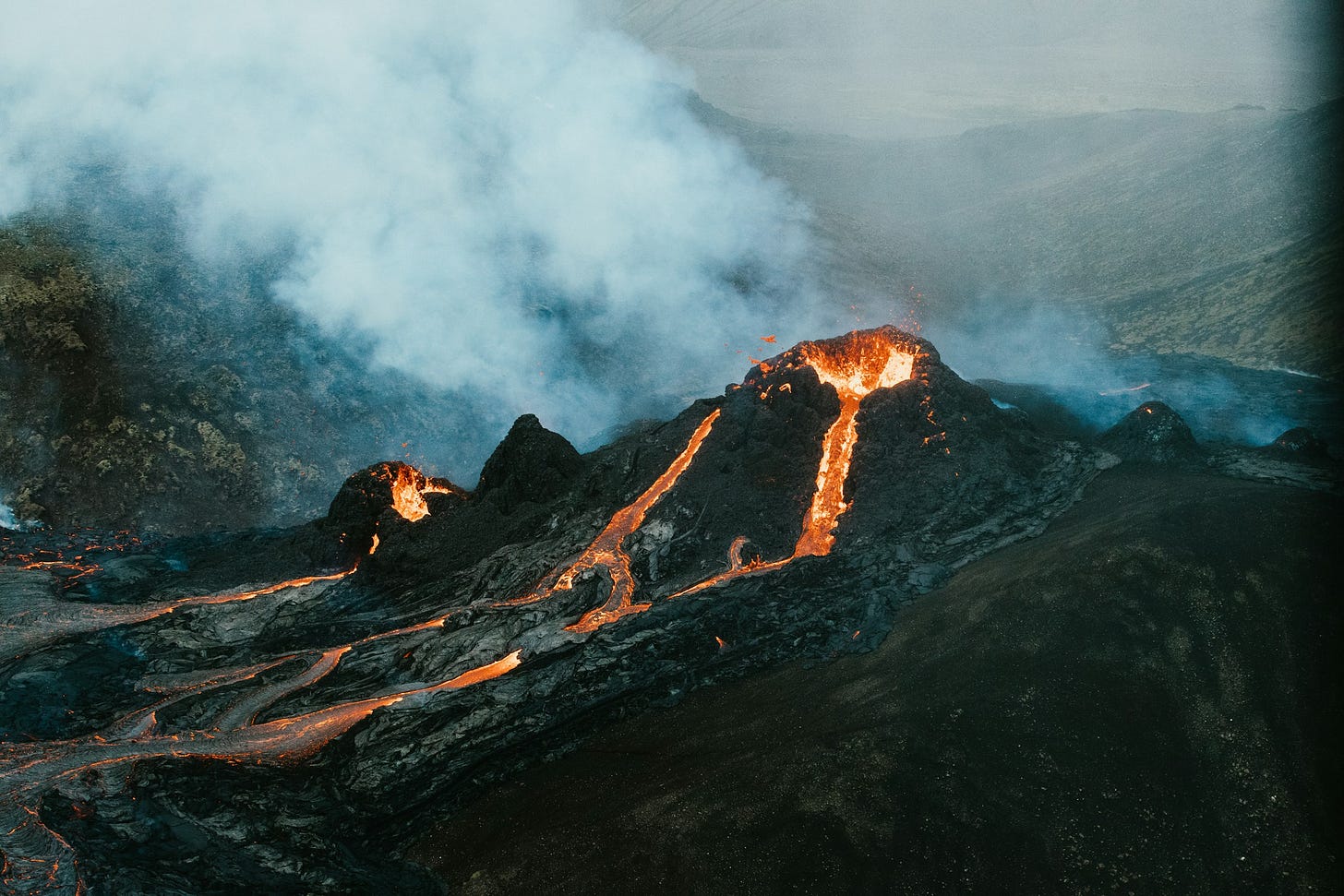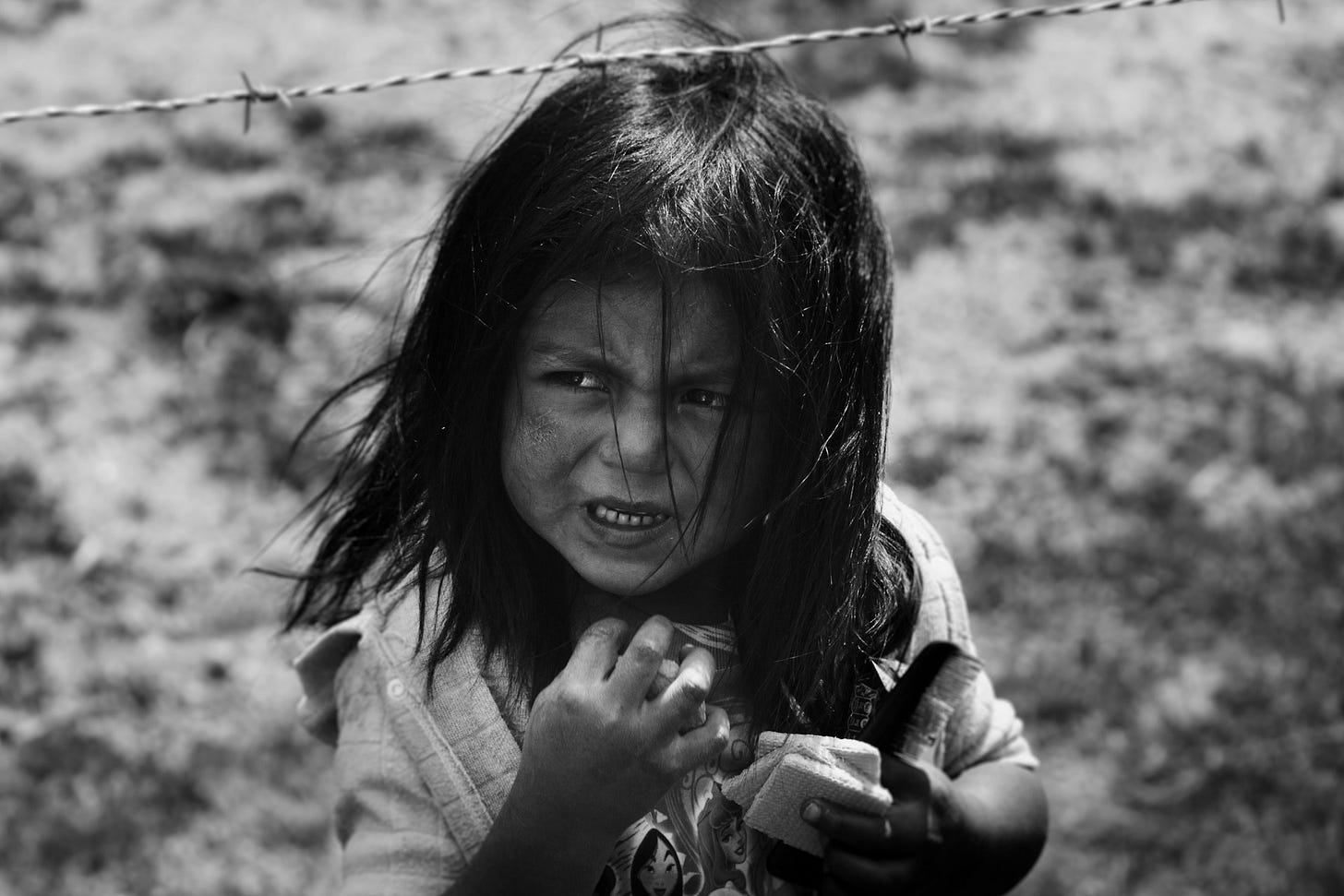Photo by Claudio Schwarz on Unsplash
Dear Seized Readers,
What do you see outside your window?
It’s a windy bright pinwheel of a day here in central NC. The sky is azure. The clouds like puffy cotton, and if I look down closely to the grass, I can see a tiny baby bunny nibbling on clover.
I’m trying to grow my field of vision. To be a writer, I must be observant, notice everything around me— the beautiful and the ugly, the levity and the heartbreak. I, like every human being, see only a portion of the world before me due to the influences of our culture and my perspective informed by experience.
In his book, White Poverty: How Exposing Myths About Race and Class Can Reconstruct American Democracy, Reverend Dr. William J. Barber II explains how researchers have concluded that Americans can’t see poverty within our nation. He shares that many of the poor are our quietly suffering homeless neighbors who have to sleep in their cars in retail parking lots. Barber writes that if we pay attention to these cars, we may see them in other locations such as the school drop-off lines and at our places of worship. Our struggling neighbors are parents, children, elders, people of all ethnicities and persuasions. Poverty’s misery and its attendant shame don’t discriminate.
Undoubtedly, cuts to Medicaid and the SNAP food stamps program will prove painful for those striving to survive each day. In light of this terrible and untenable situation, I present two vivid poems that point to our humanity and alternately, our inhumanity. The first poem by Indian poet, Subhas Chandra Chakra, is not unlike “You Are Who I Love” by Aracelis Girmay in tone and spirit.
Here is Chakra’s poem, “I Want Not: The Vastness.”
Photo by Silas Baisch on Unsplash
I Want Not: The Vastness I want not/ that greatness of an ocean/ that never touches the land/ that never bathes/ the dirt and dust/ of the tiny landscape/ born out of her,/ brought up along with,/ craves to be with her. I want to be/ just a pool to cater/ to the needs of/ my neighbours, around/ people, plants or animals birds or ants,/ fishes or snakes/ Everyone there/ who does gather. -Subhas Chandra Chakra This poem can be found on PoemHunter.com.
Photo of Himeji Garden Pond by Diana Ewell Engel
The Pool Versus the Ocean
What do you think of “I Want Not: The Vastness?”
In this personal lyric poem, I notice how Chakra compares two bodies of water, the seemingly infinite ocean and the small pool. With his simple beginning lines of the first and second stanzas, he sets up this comparison: “I want not / that greatness of an ocean ... “I want to be / just a pool to cater …” Profoundly beautiful poems can begin this simply.
I see his pool as a metaphor for the spirit of life-giving hospitality he wishes to share with human, plant, and animal neighbors. This word, neighbors, perhaps the most crucial word in this brief poem, communicates the significance and affection he attaches to the idea of community. A body of non-salinized water not only offers hydration and refreshment, but also reflects the faces of those who gather around. All are provided for; all are seen. Chakra wants to bathe the dirt and dust of the surrounding landscape. He expresses an attitude of humility and generosity. I read in his poem an underlying message of coexistence and care.
Now, we turn to a poem by the accomplished 20th to 21st century American poet, Adrienne Rich. “For the Record” conveys a strikingly different tone.
Photo by Asa Steinarsdottir on Unsplash
For the Record The clouds and the stars did not wage this war/ the brooks gave no information/ if the mountains spewed stones of fire into the river/ it was not taking sides/ the raindrop faintly swaying under the leaf/ had no political opinions and if here or there a house/ filled with backed-up raw sewage/ or poisoned those who lived there/ with slow fumes, over years/ the houses were not at war/ nor did the tinned-up buildings intend to refuse shelter/ to homeless old women and roaming children/ they had no policy to keep them roaming/ or dying, no, the cities were not the problem/ the bridges were non-partisan/ the freeways burned, but not with hatred
Photo by Roi Dimor on Unsplash
Even the miles of barbed-wire/ stretched around crouching temporary huts/ designed to keep the unwanted/ at a safe distance, out of sight/ even the boards that had to absorb/ year upon year, so many human sounds so many depths of vomit, tears/ slow-soaking blood/ had not offered themselves for this/ The trees didn’t volunteer to be cut into boards/ or the thorns for tearing flesh/ Look around at all of it and ask whose signature/ is stamped on the orders, traced/ in the corner of the building plans/ Ask where the illiterate, big-bellied/ women were, the drunks and crazies,/ the ones you fear most of all: ask where you were. -Adrienne Rich This poem can be found on the Warrior Poets website.
Photo by Bill Wegener on Unsplash
Complicity
Adrienne Rich calls those in power and her readers to accountability in “For the Record.” Notice her direct address and her biting tone. She is summoning our attention with a strong admonition.
Unlike Chakra, Rich is not writing a personal lyric. Instead, this is a poem of protest.
Each of her sextains, except for the ending stanza, hinge on negatives, what did not wage this war.
See how she moves from images of nature such as clouds, stars, brooks to architecture and building materials such as houses, tinned-up-buildings, barbed-wire. Even the cities and their infrastructure of bridges and freeways are included in her catalog of the blameless, the non-partisan.
Photo by Denys Nevozhai on Unsplash
This is a searing gut-wrencher to read. Rich hits us with the effects of neglecting the poor and cordoning them off into the gruesome corners of our cities: the poisoning backed-up raw sewage, slow fumes, the miles of barbed-wire, depths of vomit, tears, slow-soaking blood, thorns.
By beginning with naming the blameless, she can turn to an indictment of who is to blame, those fighting for power who are pitting themselves against each other. This is a clever writing strategy which she wields with resonant, strong images. The sardonic last three lines form the knife she twists in her reader’s conscience: ”Ask where the illiterate, big-bellied / women were, the drunks and crazies, / the ones you fear most of all: ask where you were.”
These last lines are particularly haunting now when our most vulnerable are distorted into monsters and exploiters by the powerful. Ultimately, Rich is pointing her finger directly at all of us: Our apathy makes us complicit in the plight of our citizens deemed worthless by many, the abjectly poor.
For thoughtful analysis of “For the Record,” see Poetry Explorer: Classic and Contemporary Poetry Explained.
Share your thoughts and questions about “I Want Not: The Vastness” and “For the Record.”
Interested in the cause of justice for the poor? Check out the Poor People’s Campaign.
Photo by Ben Koorengevel on Unsplash












Very moving.